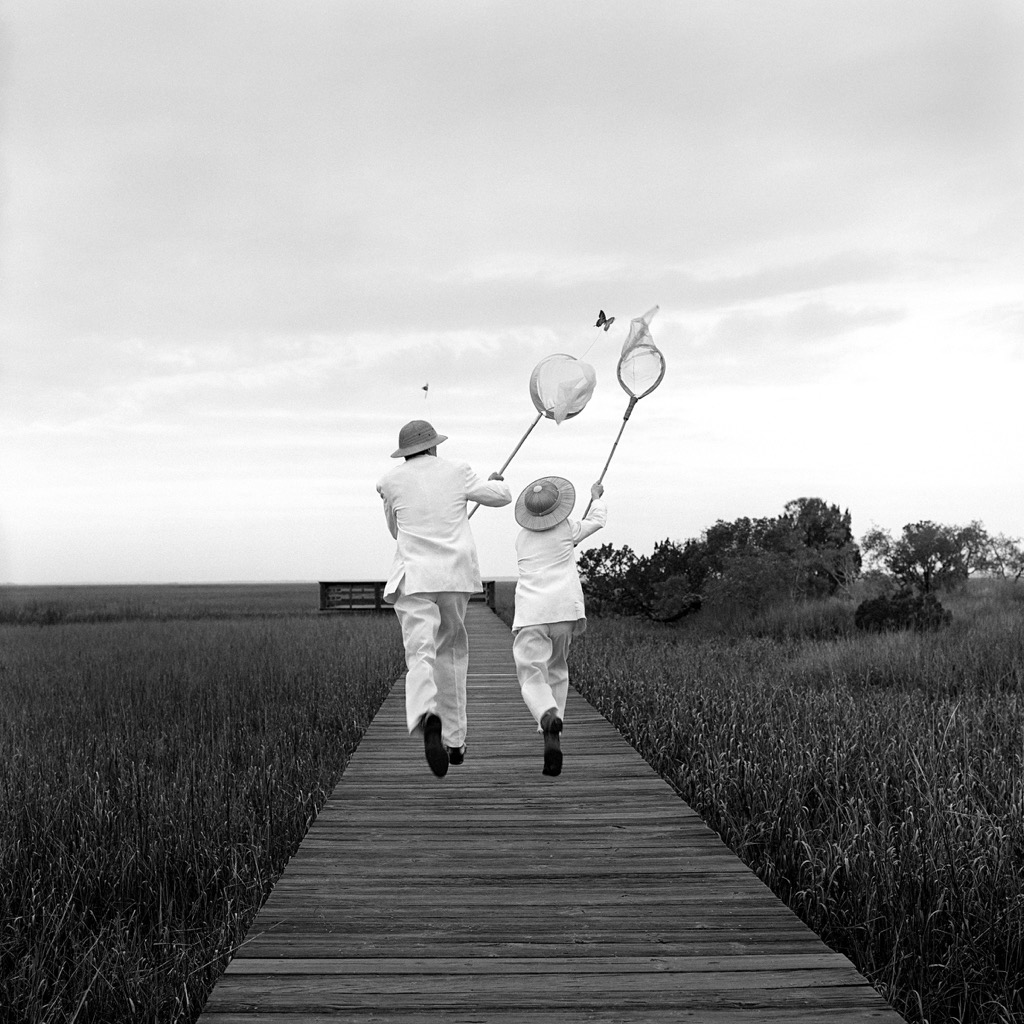The Enigmatic Optimist

Text by Walter Thomas
FOR RODNEY, A CLEAR MIND DEPENDED UPON AN ORDERLY DRIVEWAY, AND NO PRICE TAG IS TOO BIG IF IT LEADS TO A GOOD IDEA.
Until I met Roddy, I had no idea how important it is to have a friend who can wear an ascot — it’s a sure sign of independence and fearlessness.
One time, I asked Roddy, “What goes through your mind just before depressing the shutter?” He replied, “It’s interesting you should use the word depressing.” So, I asked him if he was happy or not. He said, “I’m a closet optimist.” I encouraged him to come out of the closet and lead an openly optimistic lifestyle. But I believe that if he had — if he could have — he would have lost an essential part of his artistic identity. I think artists tend to be driven by a desire to correct what they think is wrong with the world — to make it perfect. For instance, the first time I visited Rodney’s house in Snedens Landing, there were two workers raking the gravel in his driveway. When I went to see him a couple of months later, they were still there, raking. I said, “Rodney, how big is your raking budget?” I think for Rodney, a clear mind depended upon an orderly driveway, and no price tag is too big if it leads to a good idea.
Whenever Rodney and I got together, our conversation would inevitably turn to a discussion regarding the degree to which we felt underappreciated — not by friends or family, but by the rest of the world: especially the commercial world. Being underappreciated, being misunderstood, is a subject we never tired of. In fact, we believed it to be a subject worthy of being taught at the university level, and that the dean of the department should be Rodney Smith. Rodney understood that the only cure for feeling underappreciated is complaining about it — especially to someone who suffers from the same condition. I believe that is why Roddy admired Freud so much. One time he told me that “Freudian psychoanalysis is the greatest gift that was ever given to me — much more important than money or anything else.” (I’m sure he wasn’t including his wife or his children when he said that.) He continued, saying, “I think that without 25 years of therapy I never would have been a successful photographer.” I know how expensive Roddy’s photographs are, and I also know how costly therapy is, so I always wondered if his earnings as a photographer were neutralized by the price of being a patient. When I asked him, he assured me that he was well ahead of the game, so I no longer worried about all that raking.
But before there was Freud there was God — at least that’s what some people say — so Rodney attended divinity school in order to explore the Big Questions: What is the nature of humankind? Why are we here? What does it all mean? And most of all: Why don’t these questions have answers? It’s like we’re stuck in some kind of darkness. For Rodney, the light he chose for illuminating that darkness was humor. Rodney’s work is often described as whimsical, or surreal, but his photographs portray the human condition as powerfully as those taken by his mentor Walker Evans.
At the end of the day, the only thing that separates the artistic visions of these two men is wardrobe. Don’t be distracted by the women in ball gowns. Don’t be misled by the men in tuxedos. An exquisitely manicured garden can still be a labyrinth without an escape. Sometimes the only line of defense between insanity and the absurdity of life is a ledge. When you look at Roddy’s businessman — who for all eternity is poised to leap off a building — miraculously, you don’t fear for him. It’s a Charlie Chaplin moment. And we know that somehow, he’s going to land where it’s soft.
And all those people in Rodney’s photographs who search the horizons with binoculars or telescopes or even magnifying glasses, looking for something that may never come, or the ones who put their head in a hedge, or a fireplace, or a jet engine — what is Rodney saying if not, this is who we are — this is the our plight, and all we can do, to endure it, to survive it, to try to understand it, is to embrace it. To put on our best clothes, put on our best face — to don our ascots — and enjoy it for as long as it lasts. And if that’s closet optimism, I’ll take it.

This article appears in Holiday 2021 issue of Chanintr Living Download full issue
Or explore the entire library Visit the Chanintr Living Archive


